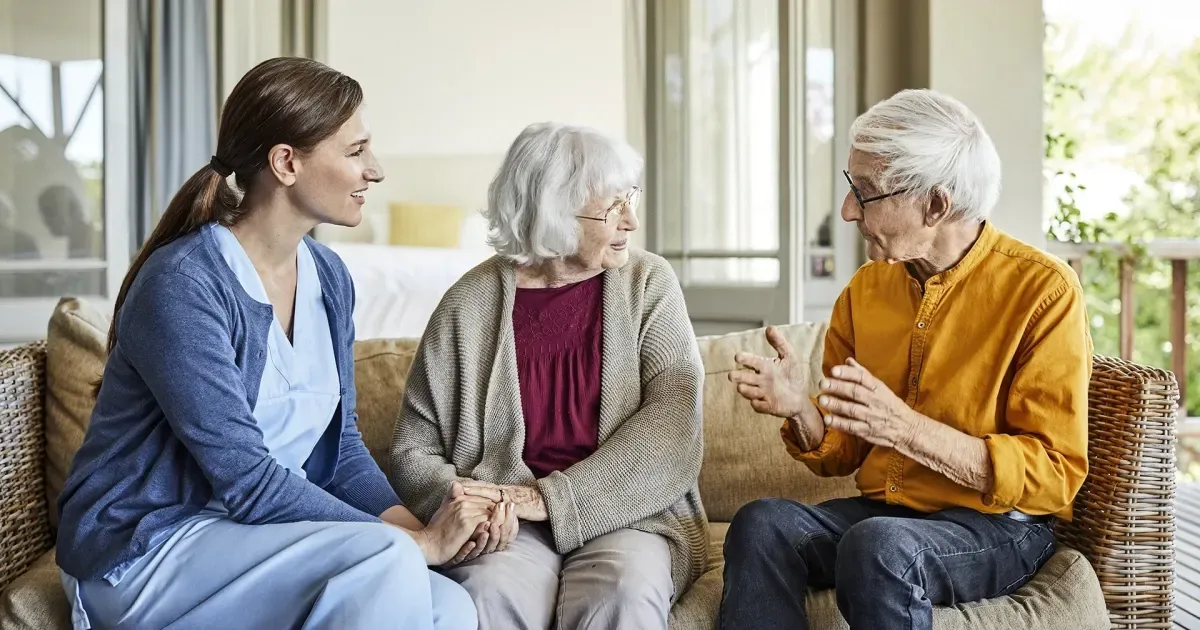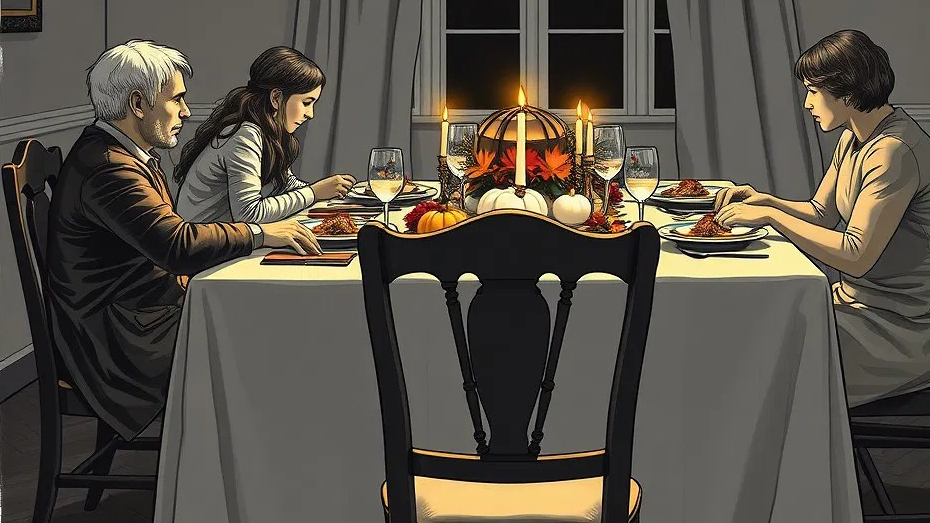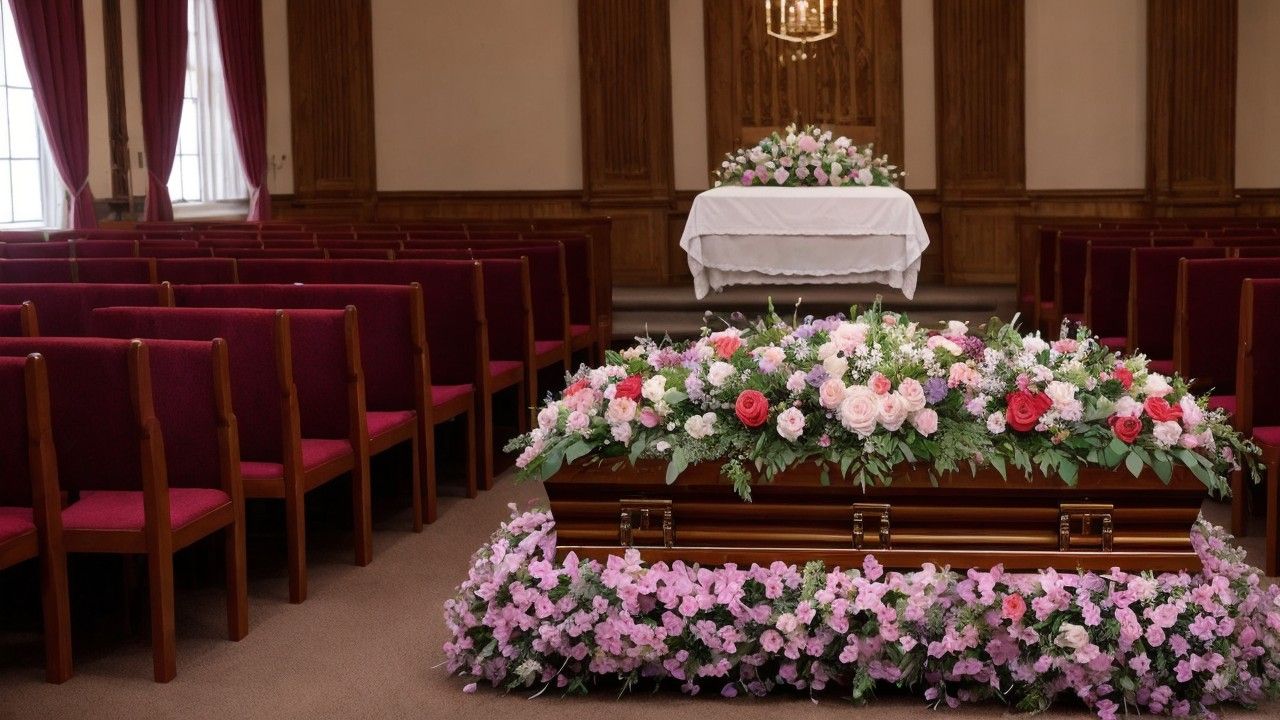Find a Trusted Proivder
Helpful Links

Business Hours
- Mon - Fri
- -
- Sat - Sun
- Closed

Share This Article
The cruel thing about death is that it can snatch our loved ones unexpectedly. Most of us have been confronted by death in the most heart-wrenching ways, in our happiest moments. A car crash on the way home from a party, a complicated childbirth, an unsuccessful medical procedure, a suicide, a homicide, a sudden medical condition.
While death is generally painful,
unexpected deathshit differently, and it's a wonder how we survive it. But such is the human spirit, ever resilient, ever fighting and triumphing. If you've suddenly lost someone dear, we understand the pain, the shock, and how difficult it is to make the necessary decisions.
Ideally, if you're the closest next of kin, you'll have to make several crucial decisions. So, to help you out, we created this post so you know what's expected of you when a death occurs.
What To Do After Someone Dies
After an unexpected death, you'll have to make certain decisions right away. These include the following:
Obtain A Legal Death Pronouncement
The deceased must belegally pronounced dead before anything else can be done. You can't even notify the family until their death is legally and medically verified. If your loved one dies in hospice or hospital, the medical staff will handle this first step.
Once an official declaration has been made, the paperwork can begin. However, if they die at home in a case of unexpected death, the first thing to do is call 911. An ambulance will be dispatched, or the police will show up and make an official announcement. They may have to be moved to the emergency room to be confirmed dead.
If the deceased dies at home under the care of a hospice nurse, the nurse will make the announcement. From there, they can be taken to the
funeral home. Otherwise, if you wish to have a home funeral, it's important to remember that you can't
have any plans unless your loved one is declared dead.
Get The Word Out
With the death legally confirmed, the next step is making the news public. Family and friends should be notified, and their employer should know their employee is dead. You may not have the strength to call everyone, so it's advisable to call a few of your closest relatives and have them share the news with other relevant people.
Alternatively, send a mass email or group text or leave messages on the phone. Even better, if the person was a public figure or active on social media, consider making a status update to go viral and tagging the deceased. Going the social media route may send shock waves across your social circle, but it will be one major step out of the way. You may also want to call their church community and inform the neighbors.
Next, contact their employer so that payroll issues can be handled immediately. Inquire if their job provided any death benefits and how to access their pension.
Research Your Funeral Home Options
You need a compassionate care home that will treat your loved ones with dignity and professionalism. That's why you should research the funeral and burial services offered in your area.
Most people choose to spare their surviving family the burden of funeral planning by making
pre-need funeral arrangement while they're alive. You may have discussed these with the deceased before death to know their wishes. Otherwise, contact their attorney about any wills or legal instructions they may have written somewhere. If none exists, you'll have to start planning a funeral from scratch, which calls for extensive consultation with the extended family.
You'll have to organize a meeting with other family members to discuss the best send-off to give your loved one according to your budget. This should take place a day or two after the body has been moved to the funeral home and the family has had time to process the tragedy.
Start Making Arrangements for Burial or Cremation
Depending on the family's collective decision, it's time to start making burial or cremation plans. Choose your preferred cemetery in your area, or if planning a cremation, review your options. Choose the right urn and where the ashes will be scattered, or decide on the ideal casket and monument if burying. Will you be having a traditional or green burial?Calculate the funeral costs and make decisions based on your budget. A funeral director can help with this step.
Contact The Veterans Administration
This step applies if the deceased was a member of the armed forces and was entitled to veterans' benefits. The VA may be included in the funeral planning and could provide a veteran's salute, facilitating a tombstone complete with engraving. Note that this only applies to retired veterans; others who died while in active service usually have their funerals organized by the military. If the deceased belonged to a specific religious group, contact the organization so they can make religious plans for the funeral service.
Look Into The Logistics
Perhaps your loved one's remains may need to be moved to another state where they'll be interred. If that's the case, you'll have to organize their transport and other logistics. However, for this step, you'll need to work with two funeral homes: the one keeping their remains and the one receiving them in the other state. The two care homes will liaise for a seamless and efficient process. Otherwise, if the deceased was cremated, you can obtain paperwork from the host funeral home and transport the remains at your convenience.
Moreover, if your loved one expressed their wish to donate their body to science, you can get help from the hospital or hospice on the next steps to take. Finally, tell the world your loved one's story by organizing a moving obituary to be written in their memory. If you have a writer in the family, they can volunteer to take up this noble role, or you can hire aprofessional one at a fee.
Contact Funeral Service Providers
The funeral planning process involves multiple products and services that are necessary to make it successful and complete. Below are the people whose services you'll need and who you will contact at every step in the planning journey.
The Funeral home
The funeral director will be among the first responders you'll work with from the early stages of funeral planning. They'll take care of your loved one and help with most arrangements until the day of burial or cremation. Ensure you choose the right funeral home that meets your budget and preferences. If you are not sure how to do that, read this guide on choosing the right funeral home for your loved one. Next, contact a funeral home near you.
The Cemetery Manager
Whether you're planning a traditional or green burial, you want to know the maintenance policies of the cemetery. Is it a public or private cemetery? Some community burial grounds rely on families and well-wishers to maintain the graves.
The Flower Designer
Flowers help decorate the funeral and brighten the dullness of death. When planning wreaths, casket sprays, and sympathy bouquets, choose a dependable florist who will deliver prompt, exceptional service according to your needs. Contact a dedicated florist near you.
Arrange the Venue
Whether you're expecting a large gathering or a modest attendance of mourners, you'll need a place to host the memorial service or funeral reception. Your front yard may not be the ideal place, so you want to book a venue that's conducive to the occasion. Check out available event spaces in your city and book your preferred venue with one click.
Pick Up a Monument
Monuments are beautiful pieces of art that help mark our loved ones' resting places, preserve their memory, and give them an everlasting spot among the living. When choosing a tombstone or monument, factor in your family's culture, traditions, or religious beliefs.
You may also want to feature your loved one's photos, interests, or hobbies when engraving. For customized tombstones, make arrangements with the monument makers to create a unique masterpiece a few days before the burial. Check out the most creative monument makers in your city and contact them right away.
Hire a Musician
Music is a universal language that speaks deep into the human soul. Sometimes, death leaves us speechless, and the only way to express our feelings is through music. To make the service a lively and uplifting event, enlist the services of a gifted solo musician or live band and let them bring hope and comfort with beautiful music.
Enlist Funeral Catering Services
Even amidst grief and loss, people still need to eat. From finger foods to snacks to high teas, you want to ensure your guests don't leave on an empty stomach. Find out which catering companies in your city specialize in funeral catering and reach out.
Contact an Officiant
Whether it's a clergy or a legally ordained minister, you'll need someone to preside over the ceremony. It can be your local pastor, a friend who chooses to volunteer, or a funeral celebrant who will keep it as it should be: professional and memorable.
Choose a Professional Photo/Videographer
Keep your loved one's memories alive even in death. The funeral service will mark the last time you see them again, so you want to capture every moment of that day. Let a talented photographer and videographer immortalize your loved one's memories through professional lenses.
See a Therapist
Grief is a monster, and it can stay with us for weeks and, months, and years after the loss. Sometimes, talking to someone is the only way to cope with it all. In this case, a grief counseloris best placed to walk you through that long road to healing. See who's available to hold your hand now.
Final Thoughts
When death occurs suddenly, the responsibilities can be overwhelming.
If you're the next of kin, you'll have to make most of the decisions involving funeral planning. Fortunately, you can delegate certain roles that don't require your legal input. For example, you can have a few relatives step in as pallbearers, others can write and read the eulogies, while others may keep tabs on well-wishers and handle post-funeral gatherings.
However, for the most part, you'll be at the center of everything, which can leave you drained. Not anymore. Keys2Eternity is
here to help make funeral planning less burdensome. We have providers ready to offer whatever services you need throughout the process. Browse our
extensive directory and talk to providers near you, no matter where you are.
Related Articles
Related Articles





